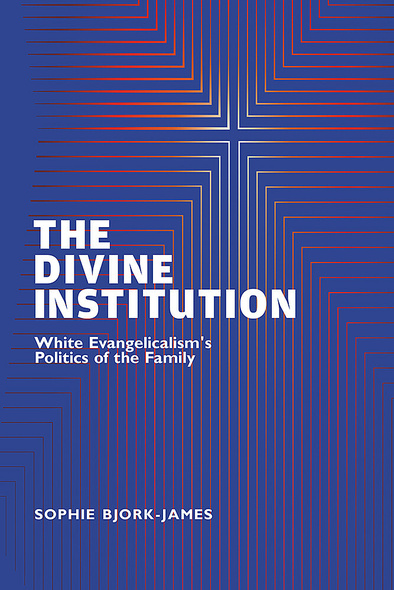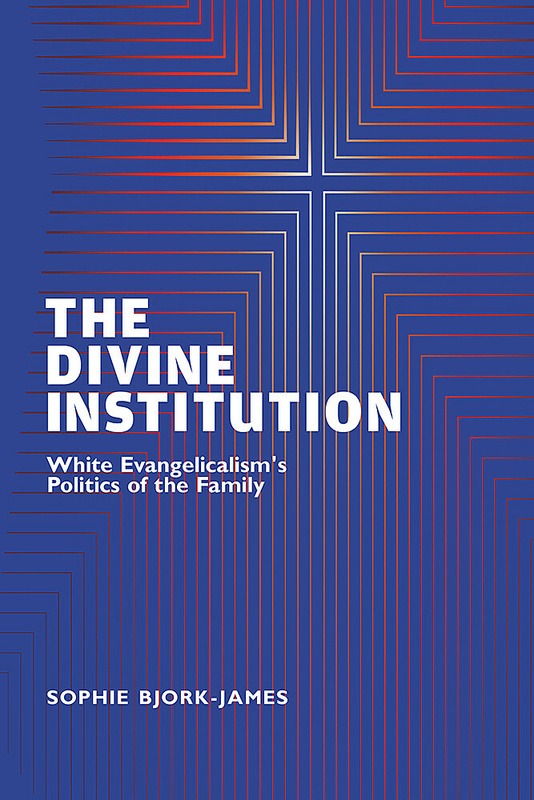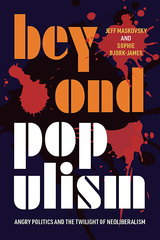
198 pages, 6 x 9
1 b-w image
Paperback
Release Date:12 Mar 2021
ISBN:9781978821842
Hardcover
Release Date:12 Mar 2021
ISBN:9781978821859
The Divine Institution
White Evangelicalism's Politics of the Family
Rutgers University Press
The Divine Institution provides an account of how a theology of the family came to dominate a white evangelical tradition in the post-civil rights movement United States, providing a theological corollary to Religious Right politics. This tradition inherently enforces racial inequality in that it draws moral, religious, and political attention away from problems of racial and economic structural oppression, explaining all social problems as a failure of the individual to achieve the strong gender and sexual identities that ground the nuclear family. The consequences of this theology are both personal suffering for individuals who cannot measure up to prescribed gender and sexual roles, and political support for conservative government policies. Exposure to experiences that undermine the idea that an emphasis on the family is the solution to all social problems is causing a younger generation of white evangelicals to shift away from this narrow theological emphasis and toward a more social justice-oriented theology. The material and political effects of this shift remain to be seen.
Sophie Bjork-James has taken on one of the central dilemmas of contemporary American culture, the stubborn association between white evangelical religious practice and profoundly conservative constructions of ‘family values.’ Using fine-grained ethnographic methods, she brings us close to white evangelicals and enables us to more fully appreciate the complexities of racial politics that unfold in their practices.
Intersectionality is hard work, but Sophie Bjork-James applies it brilliantly to issues of race, faith, gender, and sexuality. Her study shows the ways in which race and racial supremacy structure and infect white evangelicalism's entire approach to men, women, and children.
What distinguishes Bjork-James’ work, quietly published this past spring, is the ethnographic intimacy of her observations. She shows how familial norms structure the ways evangelicals talk about race, homosexuality, ‘biblical’ issues, and conversion. Bjork-James argues that understanding evangelical family values from the inside is the best way to make sense of white evangelical worlds.'
[The] book stand[s] out from other works on contemporary evangelicalism. As such, The Divine Institution works as a useful and informative starting point to think about the cultural and political divides between secular and evangelical America.
The Divine Institution advances a lively body of scholarship that leaves no doubt: racialization is a foundational problem in the anthropology of religion. [It] richly demonstrate[s] that racialization is not only an analytical problem; it is a lived problem that religious communities self-consciously negotiate.
Anthropologist Sophie Bjork-James’s The Divine Institution presents a subtle, carefully crafted analysis that traces the intersectional relationships between faith, gender, sexuality, and politics within evangelical sub-cultures....It is in throwing light on these complex liminal spaces between hard categories of difference that Bjork-James’s book is especially impressive.
What distinguishes Bjork-James’ work, quietly published this past spring, is the ethnographic intimacy of her observations. She shows how familial norms structure the ways evangelicals talk about race, homosexuality, ‘biblical’ issues, and conversion. Bjork-James argues that understanding evangelical family values from the inside is the best way to make sense of white evangelical worlds.'
[The] book stand[s] out from other works on contemporary evangelicalism. As such, The Divine Institution works as a useful and informative starting point to think about the cultural and political divides between secular and evangelical America.
Intersectionality is hard work, but Sophie Bjork-James applies it brilliantly to issues of race, faith, gender, and sexuality. Her study shows the ways in which race and racial supremacy structure and infect white evangelicalism's entire approach to men, women, and children.
Sophie Bjork-James has taken on one of the central dilemmas of contemporary American culture, the stubborn association between white evangelical religious practice and profoundly conservative constructions of 'family values.' Using fine-grained ethnographic methods, she brings us close to white evangelicals and enables us to more fully appreciate the complexities of racial politics that unfold in their practices.
SOPHIE BJORK-JAMES is an assistant professor in the anthropology department at Vanderbilt University in Nashville, Tennessee. She is the coeditor of Beyond Populism: Angry Politics and the Twilight of Neoliberalism.
Table of Contents
Chapter 1: From Rules to a Relationship: The Transformation of US Christianity
Chapter 2: The Divine Institution and the Segregated Church
Chapter 3: Evangelicalism and a Strict Father Theology
Chapter 4: Same-Sex Attraction and the Limits of God’s Love
Chapter 5: Paternal Politics
Chapter 6: Losing (and Remaking) My Religion: The Transformation of White Evangelicalism from Within
Conclusion: White Evangelicalism in Trump’s America
Chapter 1: From Rules to a Relationship: The Transformation of US Christianity
Chapter 2: The Divine Institution and the Segregated Church
Chapter 3: Evangelicalism and a Strict Father Theology
Chapter 4: Same-Sex Attraction and the Limits of God’s Love
Chapter 5: Paternal Politics
Chapter 6: Losing (and Remaking) My Religion: The Transformation of White Evangelicalism from Within
Conclusion: White Evangelicalism in Trump’s America






